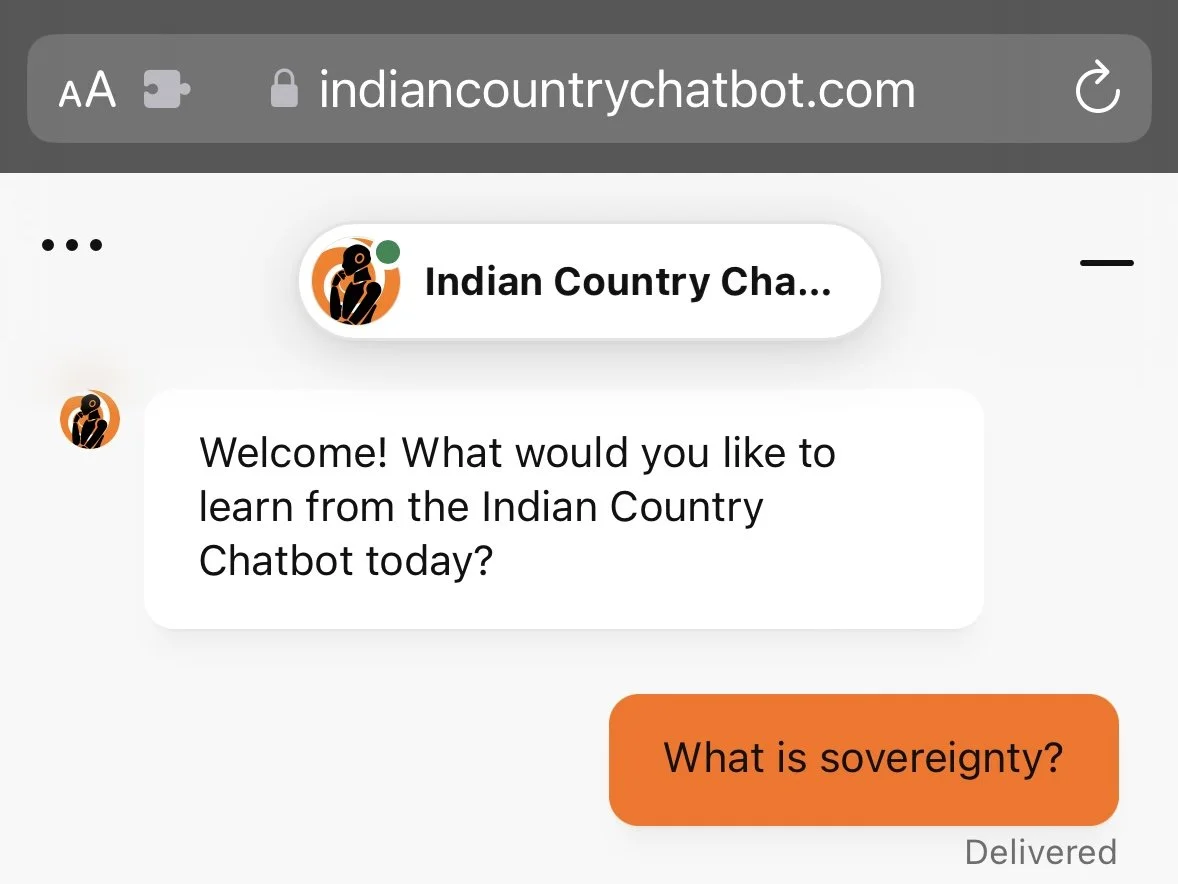Chatbot empowers Native communities with truth tool
Verified News Network is developing the Indian Country Chatbot, a culturally respectful AI tool designed to combat misinformation and support Native communities with accurate, trustworthy information
By: Brittany Harlow and Kelly Tidwell
In this age of information, misinformation, and disinformation overload, trustworthy and culturally respectful facts are more important than ever – especially in Indian Country, land in the United States that is under the jurisdiction or associated with federally recognised Native American tribes. That’s why Verified News Network (VNN) is developing the Indian Country Chatbot, a digital tool designed to counter misinformation and disinformation while providing Native communities with dependable information.
Native communities have long faced challenges with media representation, often being ignored, misrepresented, and even defamed by mainstream news outlets. Meanwhile, targeted misinformation campaigns continue to flood social media and digital spaces, particularly around topics like tribal sovereignty and federal obligations. These campaigns not only mislead the public but also divide it. VNN’s chatbot is being developed as a proactive solution to these persistent challenges.
The Indian Country Chatbot project is being led by VNN CEO Kelly Tidwell (Muscogee citizen and Cherokee descendant), serving as the project manager; senior journalists Rachael Schuit (Menominee descendant), while Brittany Harlow ensures the chatbot's responses are accurate and respectful. Harlow also oversees the gathering and production of content to train the chatbot on a variety of topics, including Native history, sovereignty, treaties, misinformation and disinformation, and scams.
Landing page for Indian Country Chatbot.
The project has been an insightful learning experience thus far. The original idea was to leverage the original reporting of VNN Oklahoma (VNN’s local newsroom based on the Muscogee Reservation) and other VNN affiliates to train the chatbot on Indigenous topics, as well as develop other VNN content based on chatbot tester questions and feedback. To date, 32 people signed up to test the Indian Country Chatbot. Of those 32, 26 are Indigenous, representing 11 tribes. The first few initial testers asked over 100 questions, providing insight into what the chatbot could and could not answer appropriately as well as its strongest and weakest areas.
The VNN team also sought to leverage the work and resources of other Indigenous-led organisations. But securing access to Indigenous-led digital resources for chatbot training has proved to be a significant challenge. Due to the legacy of information extraction and misuse, many Native organisations were either hesitant to share their data or declined altogether. This emphasised the importance of respecting digital sovereignty and ensuring consent-based participation.
In response, the VNN team pivoted to developing more original Indigenous-centered content in FAQ format, ensuring each question could be backed up by at least three trustworthy sources. The chatbot was also trained on the Indigenous-led resources the VNN team was granted permission to use, including resources from the Native American Rights Fund (NARF), a huge win for the Indian Country Chatbot’s intelligence. The team also developed a plan for a nationwide call to Indigenous thought leaders and academics, inviting individuals to contribute voluntarily in exchange for recognition on the Indian Country Chatbot webpage.
The creative side of the Indian Country Chatbot has also been a challenge. The VNN team wants the face of the Indian Country Chatbot to be trustworthy and culturally respectful, but when you run “Native American professional” through AI image creators, the results are anything but. That is why the team also chose to put out a nationwide call for artists to design the face of the Indian Country Chatbot. The VNN team will pick out their top five and then a public vote will be held to determine the winner.
Though the project has had its challenges, each challenge has yielded understanding and appreciation for the care that needs to be taken with AI technology development in Indian Country. The Indian Country Chatbot project is an education for the VNN team just as much as it is for the audience it is being developed to serve, relating to information gaps and the power of collaborating for good. By centering Native experiences and requirements, VNN’s Indian Country Chatbot is gearing up to be an AI gateway our community members can feel good about.
_
This article is part of a series providing updates from 35 grantees on the JournalismAI Innovation Challenge, supported by the Google News Initiative. Click here to read other articles from our grantees.



